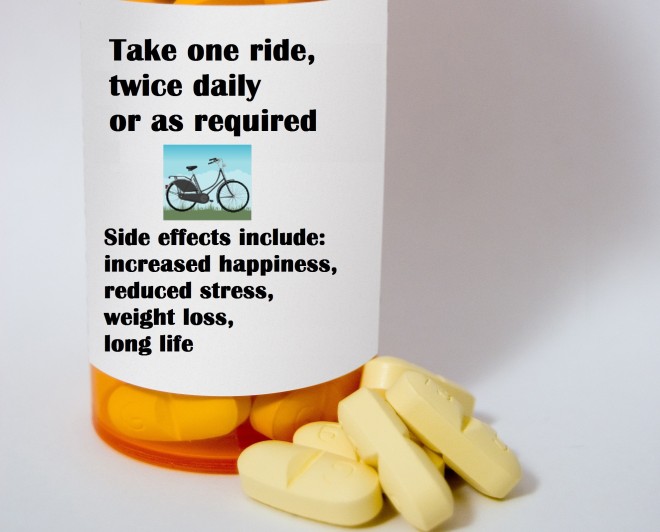
The cycling ‘calculator’: valuing the health benefits of cycling
When we speak to politicians, we all need hard facts and figures to make a case for cycling. ECF’s Health and Environment policy officer Benoit Blondel talks about the World Health’s Organisation (WHO) health savings ‘calculator’, which can help bicycle advocates, city planners and national governments value cycling in clear economic terms.
Cycling is the wonder drug of the transport world. It provides solutions to so many problems and unlike most forms of transport, it has lots of positive side effects. Think about it: people riding bicycles makes no noise, emit no air pollutants or greenhouse gases, they ease traffic congestion… the list goes on. But the real bread winner for policy makers are the health benefits. The more people cycle, the healthier they are. This means that cyclists don’t just ease congested streets, but they ease congested health systems. Higher levels of physical activity translates into reduced morbidity (ill health) and reduced mortality of cyclists.
HEAT for Cycling symposium
On 11 June 2013, a podium discussion will focus on the “Economic quantification of the health benefits of cycling: can it support changes in policy and practice? A review of experiences using WHO Health Economic Assessment Tool (HEAT)”.
HEAT for Cycling training
On 11 June 2013, 11.00 AM, a ‘hands on’ training session will also be organised with some of the experts involved in the elaboration of the tool. This training is open to all Velo-city participants but the training not being formally part of Velo-city, would-be participants need to register.
Putting a figure on the health benefits of cycling.
There is a lot of jargon in the health sector when it comes to calculating health benefits. Policy wonks use terms such as such as ‘disability-adjusted life-years’ (DALYs) or ‘years of life lost’ (YLL). These concepts may be a little difficult to understand, let alone transform into monetary terms. Thankfully, the hard work has already been done, and the WHO has developed a calculator, which they call ‘HEAT’ (Health Economic Assement Tool) for cycling.
What have they based their numbers on? Studies which found that in any given year, regular cyclists (i.e. cycling 3 hours/week, 36 weeks/year, or 108 hours/year) were on average 28% less likely to die than non-cyclists. The evidence of these studies has been deemed strong enough by the WHO to create the HEAT tool.
How to use: ‘HEAT for Cycling’
HEAT gives bicycle advocates answers to the following question: “If X people cycle for Y minutes on most days, what is the economic value of the health benefits that occur as a result of the reduction in mortality due to their physical activity?”
To use the tool, data needs are quite limited: an estimate of how many people are cycling and an estimate of the average time spent cycling. HEAT can be used to evaluate the reduced mortality from present and future levels of cycling at the national, regional or city level. It can even be used to evaluate the impact of a new or projected infrastructure.
The tool is available online and is very user-friendly. HEAT's methodology and user guide gives you all the information you need to better understand the tool: the underlying studies, how the tool actually works, what the assumptions and limitations of the tool are, etc. The best part about it is that it's free to use.
If you're still a little lost, there are training sessions coming up in June as part of Velo-city 2013 in Vienna. Time to start calculating how many euros your cyclists are saving your city!
 About the Author
About the Author
Benoit Blondel is the Health and Environment Policy Officer for ECF. He’s the author of ECF’s famous CO2 Study and has worked extensively with the United Nations, Brussels based NGOs in the health sector as well as Belgian cycling advocacy groups.
- Log in to post comments
Contact the author
Recent news!
Upcoming events
Contact Us
Avenue des Arts, 7-8
Postal address: Rue de la Charité, 22
1210 Brussels, Belgium










